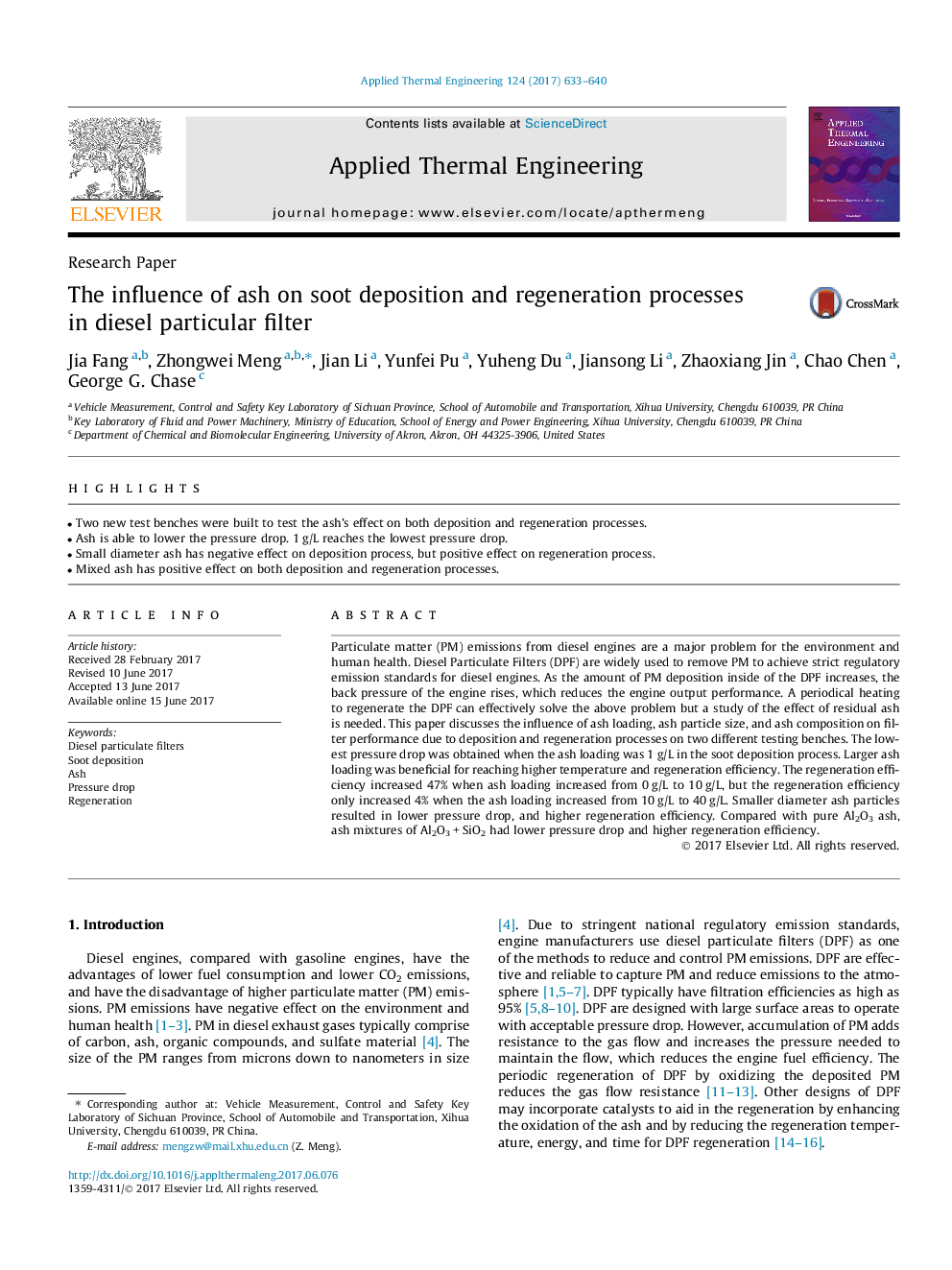| Article ID | Journal | Published Year | Pages | File Type |
|---|---|---|---|---|
| 4990649 | Applied Thermal Engineering | 2017 | 8 Pages |
Abstract
Particulate matter (PM) emissions from diesel engines are a major problem for the environment and human health. Diesel Particulate Filters (DPF) are widely used to remove PM to achieve strict regulatory emission standards for diesel engines. As the amount of PM deposition inside of the DPF increases, the back pressure of the engine rises, which reduces the engine output performance. A periodical heating to regenerate the DPF can effectively solve the above problem but a study of the effect of residual ash is needed. This paper discusses the influence of ash loading, ash particle size, and ash composition on filter performance due to deposition and regeneration processes on two different testing benches. The lowest pressure drop was obtained when the ash loading was 1Â g/L in the soot deposition process. Larger ash loading was beneficial for reaching higher temperature and regeneration efficiency. The regeneration efficiency increased 47% when ash loading increased from 0Â g/L to 10Â g/L, but the regeneration efficiency only increased 4% when the ash loading increased from 10Â g/L to 40Â g/L. Smaller diameter ash particles resulted in lower pressure drop, and higher regeneration efficiency. Compared with pure Al2O3 ash, ash mixtures of Al2O3Â +Â SiO2 had lower pressure drop and higher regeneration efficiency.
Related Topics
Physical Sciences and Engineering
Chemical Engineering
Fluid Flow and Transfer Processes
Authors
Jia Fang, Zhongwei Meng, Jian Li, Yunfei Pu, Yuheng Du, Jiansong Li, Zhaoxiang Jin, Chao Chen, George G. Chase,
